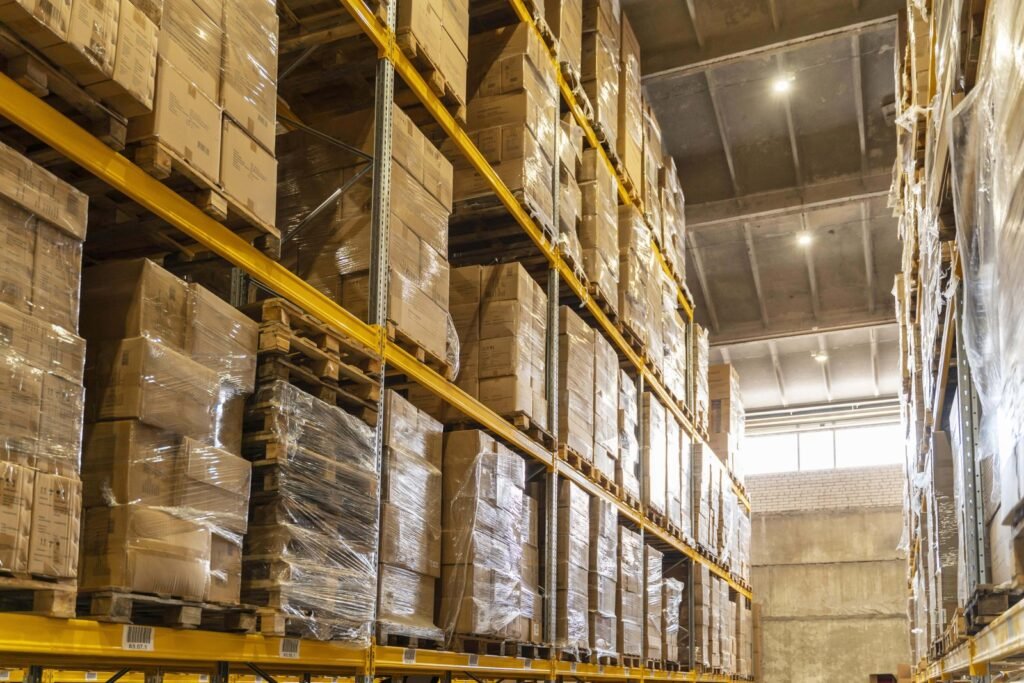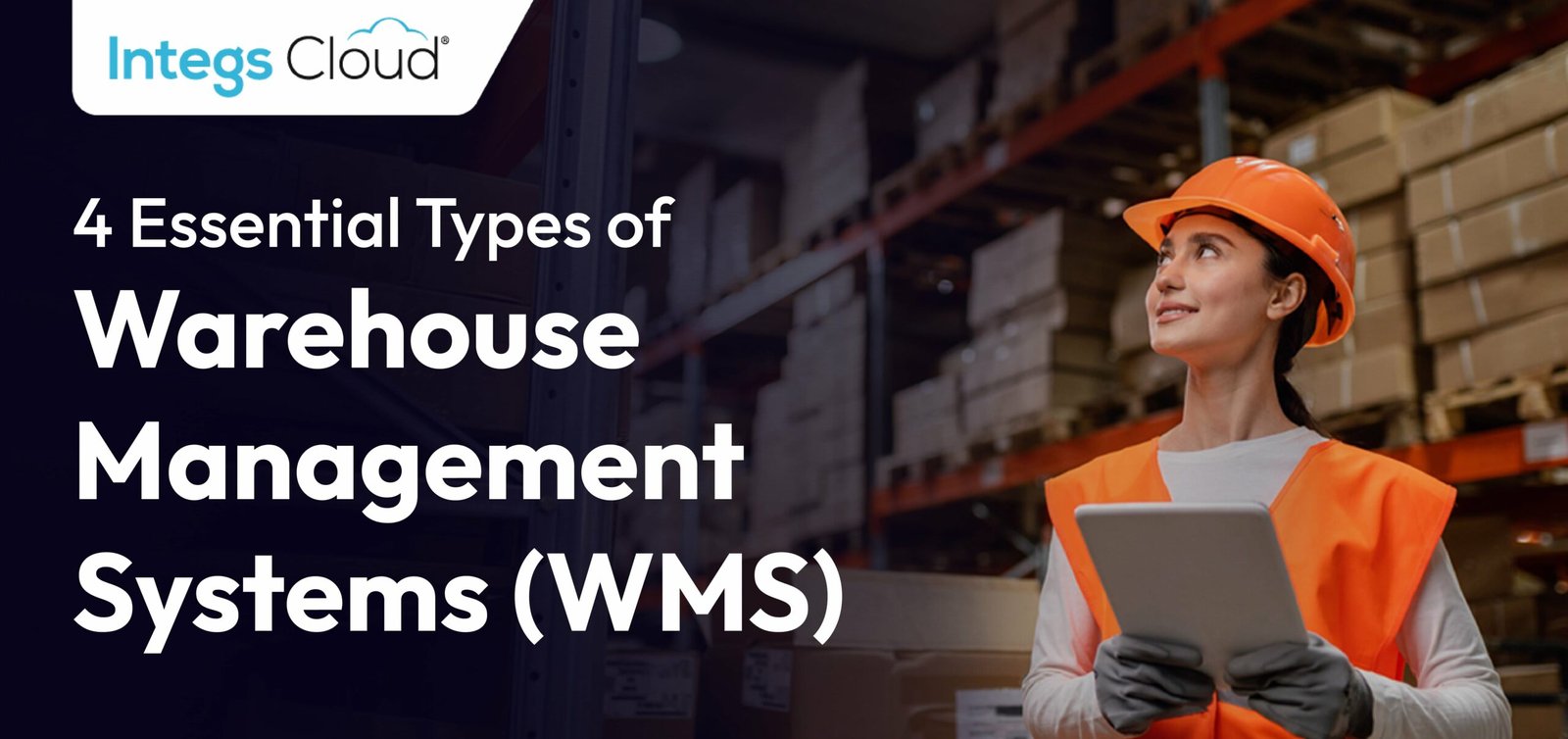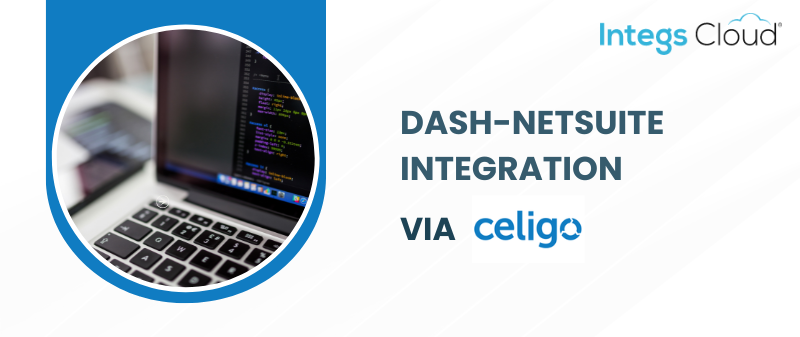The utilization of WMS software is vital for the operational success of a business. However, choosing the appropriate one can be challenging. With various types of warehouse management systems available and multiple alternatives within each category, selecting the right fit necessitates an introspective comprehension of the available options, their distinctions, and identifying the most suitable solution for your organization.
But above all, understanding these options, what makes them different, and why these differences will determine which is the best solution for the nature of your business is important while making a final decision. For 3PL businesses, there exist 4 distinct types of warehouse management systems (WMS). In this blog, we will attempt to understand each one of them in detail!
What Are The 4 Types of Warehouse Management Systems?
1. Standalone WMS
If you want to purchase standalone systems solely for your warehouse management features and absolutely nothing else, then the standalone WMS is the one for you! Vendors often merge these warehousing systems with current or future solutions, yet market them as specialized products without other supply chain functions.
Although some vendors may provide a few fundamental transportation management tools, the primary focus remains on the best-of-breed WMS approach. Essentially, this involves selective breeding, where only the most crucial and outstanding features from all potential warehouse management system modules are included.
In the different types of warehouse management systems, these typically comprise inventory management and warehouse operations, and users of standalone WMSs can anticipate features such as barcode scanning, cycle counting, slotting, putaway, receiving, picking, packing, and shipping.
Businesses can utilize standalone WMSs as one-off software, inventory management systems, or a combination of other system integrations. This makes it an excellent choice for SMBs or businesses with limited software budgets. However, standalone WMSs do not incorporate other logistics chain steps and may not integrate well with other types of business software, unlike some other warehouse management systems.

2. Supply Chain Modules
When evaluating different WMS systems, it may be helpful to consider them as a subcategory of supply chain management (SCM). SCM software has a wide range of capabilities, from managing vendor relationships to business processes to risk assessment. It emphasizes automating inventory management, material sourcing, and product cycles.
Choosing this type of warehouse management system entails investing in supply chain planning applications that also offer warehousing features. This is quite a popular approach as it allows 3PL businesses to explore the numerous benefits of SCM as well. Combining WMS with other applications promotes cohesion between different aspects of the business and supports holistic management of the entire supply chain.
If you decide to take this approach, it’s critical to minimize overlaps within your existing software. For example, if you’re already using fleet management, inventory management, and warehouse management software solutions, you could potentially combine them into a single SCM platform.

3. ERP Integrated
Another well-rounded option from the types of warehouse management systems is ERP solutions. Major 3PL processes including supply chain planning, accounting, procurement, HR, CRM, etc. can be availed via ERP solutions. It can also help upgrade the overall software of an organization.
But, you can’t just blindly opt for any ERP. One excellent choice is Oracle NetSuite ERP which offers WMS solutions that are one step ahead & also provide a centralized system. Incorporating WMS as a supply chain module or integrating it with an ERP system differs from standalone systems as it provides warehouse management as a part of a tool with broader capabilities.
The initial decision to make is whether investing in a specialized WMS or opting for a combined product would be more advantageous. The answer largely depends on the size and objectives of your business.
4. Cloud-based
In terms of maintenance costs and installation, on-premise solutions are often not reliable. You may end up paying significant amounts to handle installation and infrastructure.
In contrast, opting for a cloud-based WMS provides several significant advantages. As these solutions are hosted and maintained by a provider, implementation, and installation costs can be greatly reduced. These scalable solutions are particularly suitable for startups and smaller businesses due to their low cost of entry and subscription-based payment options.
Cloud-based management systems optimize warehouse activities, such as inventory reporting, workflow streamlining through automation, and reducing data entry time. They also ensure timely product updates and real-time data access. Implementing a cloud-based WMS enables you to manage multiple system functionalities from a centralized system.
Before choosing a platform, consider your pain points and must-have requirements. Factors such as deployment, integration, and accessible sales channels can significantly impact the success of implementation.

Conclusion
Based on how you can operate and navigate the types of warehouse management systems, you can decide to choose the best one suited for the nature of your business. For expertise on ERP-based WMS solutions, you don’t need to look further than Integs Cloud Technologies’ expertise!



